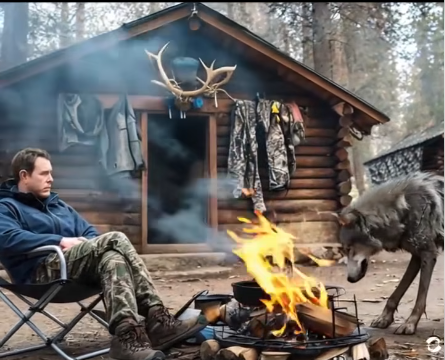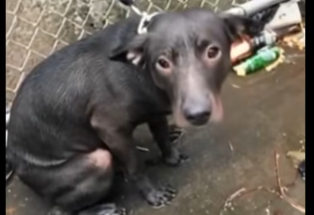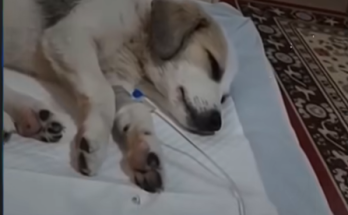The winter was brutal. Snow blanketed the earth like a shroud, the air so cold it bit through skin and bone. In the northern forest, silence ruled—broken only by the groaning of ice and the distant cry of a raven. Here, only the strong survived. Or those who had learned to listen, to adapt, to endure.
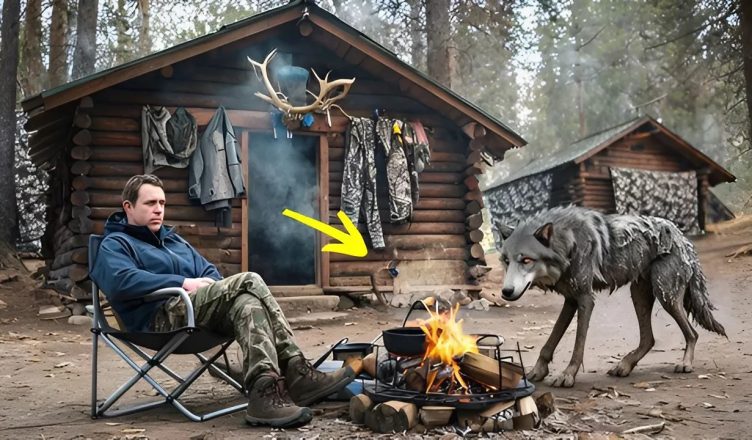
On the edge of this vast wilderness lived a man named Mikhail. A hunter. A tracker. A man shaped by the forest, weathered by years of solitude. He was nearing sixty, lived alone in a wooden cabin he’d built with his own hands. In the nearby village, people respected him. Some feared him. They said he could read the trees, predict snow by the wind’s whistle, and follow the faintest print in the snow like a shadow.
But nothing in his long life had prepared him for that night.
It began with a sound.
A strange one. Not the wind. Not branches cracking under snow. Something heavier. Slower. Dragging.
He opened the door, lantern in hand, rifle slung over his shoulder. And there—at the edge of the clearing—stood a wolf.
The animal didn’t growl. Didn’t bare its teeth. It stood still, swaying, breathing heavily. Blood darkened its fur. One paw hung limply, clearly injured. And yet—its eyes were clear. Tired, but alert.
A wild predator, at the end of its strength.
Mikhail didn’t move. Neither did the wolf.
Any other man might have raised the rifle. This was a hunter’s instinct, after all.
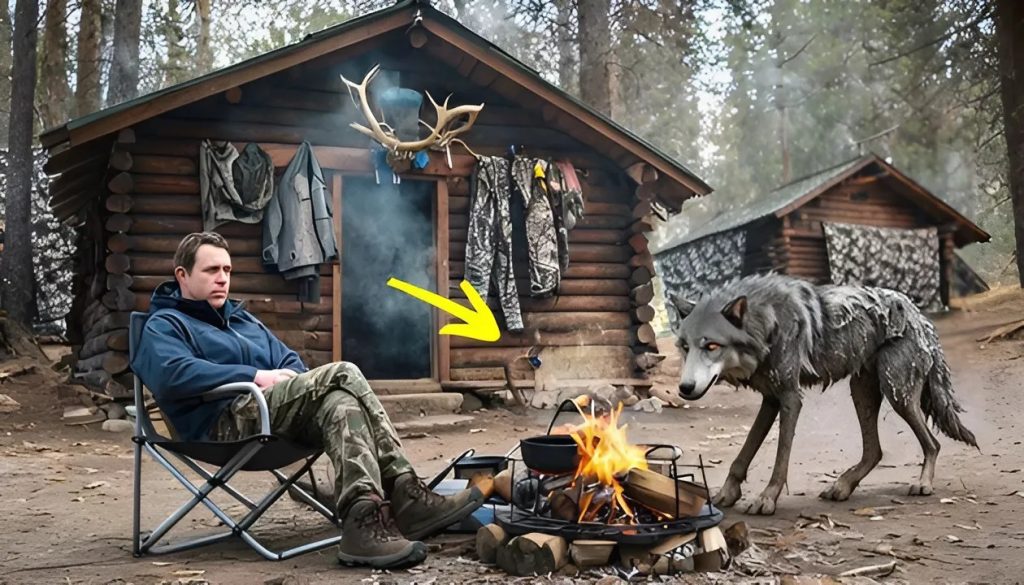
But Mikhail didn’t shoot. Something in the animal’s gaze stopped him. There was no menace in it. Only exhaustion. And something else. Something that looked like… trust.
He slowly lowered the rifle. Opened the door wider.
The wolf didn’t come inside.
It collapsed.
Right there, in the snow, as if it had spent the last of its strength to make it this far.
Without a word, without knowing why, Mikhail walked toward it. Lifted the animal into his arms. It was heavy, but limp. Still breathing. He carried it to the shed behind his cabin, laid it gently on a rug near the stove, and began to work.
He cleaned the wound—a gunshot. Not fatal, but infected. He gave the wolf water. A scrap of meat. The wolf didn’t resist. It didn’t move. But it watched him.
For hours. Then days.
The days passed quietly.
Each morning, Mikhail checked the wound. Changed the bandage. Left food. Sat in silence beside the animal, never trying to touch it again. Slowly, the wolf began to recover. It lifted its head. Then stood. Limped. Howled once—softly, mournfully.
On the fifth day, the wolf walked outside on three legs.
It stood in the doorway. Mikhail opened the gate.
The wolf looked at the trees. Then back at him.
And stayed.
Through the rest of the winter and into spring, the wolf remained nearby. It never became tame. It came and went. Slept near the cabin sometimes, vanished into the trees for days. But it always returned.
Mikhail stopped hunting wolves after that. He still carried his rifle, still walked the forest, but something in him had changed. He found himself listening more. Shooting less. As if he, too, had been healed.
Then, one day, the wolf didn’t come back.
A week passed. Then two.
Mikhail didn’t search. He didn’t call.
He just waited.
And when he finally realized the wolf would not return, he nodded quietly to himself.
He understood.
Wild things don’t stay. They come when they must. And leave when it’s time.
But that winter, a wolf had come not to die—but to live.
And the man who once hunted had chosen to help.
This story isn’t about animals. It’s about choice.
About recognizing the line between fear and trust—and daring to cross it.
Sometimes, all it takes to change a life is not pulling the trigger.
Sometimes, strength lies not in the shot, but in the silence.
Because even a dying wolf may carry more than pain.
Sometimes it carries a plea.
And if you open the door, it might just survive.
